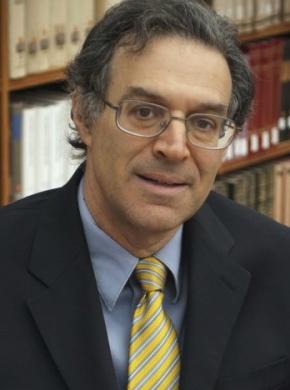Kenneth Pomeranz wins 2021 Toynbee Prize

Kenneth Pomeranz has been named winner of the Toynbee Prize for 2021. Pomeranz is a University Professor of History, of East Asian Languages and Civilizations, and in the College at the University of Chicago.
Pomeranz was selected as winner of the Prize by a committee representing the Toynbee Prize Foundation's Board of Trustees. Both Dominic Sachsenmaier (Göttingen), President of the Foundation, and Darrin McMahon (Dartmouth), Foundation Vice-President, applauded this decision. “As stated in its charter, the Toynbee Prize Foundation aims to contribute to the development of the social sciences, as defined from a broad historical view of human society and of human and social problems,” McMahon observed, and “Kenneth Pomeranz’s work has consistently—and brilliantly—accomplished this goal, driving debates about global interactions and divergences that have shaped the modern world.” Sachsenmaier concurred: “Kenneth Pomeranz more than deserves to win this prize. Many of his works have become important landmarks in the development of global historical scholarship during the past three decades. They have been intensely debated by scholars in different parts of the world, and their influence goes far beyond the community of global economic historians.”
The Trustees agreed. David Armitage, Lloyd C. Blankfein Professor of History at Harvard University commented:
No historian has done more than Ken Pomeranz to open up the possibilities of comparison and connection on a global scale. The Great Divergence not only provincialized the history of the West as seen from China: it opened up a new periodization for world history and showed the possibilities for mutual interaction between historians of distinct regions that have burgeoned in the decades since its publication. Few historians have done more to shift the direction of their discipline; still fewer have changed global discussion of the comparative fortunes of world regions more generally. As global history now moves from studying integration to disintegration, Pomeranz’s work is only likely to become more relevant and inspirational.
Hsiung Ping-chen, CIPSH Chair in New Humanities at University of California, Irvine wrote:
Whether as a student at Cornell and Yale, or as a professor at UC Irvine and University of Chicago, ecological concerns have accompanied Pomeranz’s quests for better connecting of micro-technicalities and macro-state-building in the political economy. In this regard, beyond even the massive achievement of The Great Divergence, Pomeranz’s latest work as an editor has enriched our understanding of other regions in addition to China and Europe. Further, through his example and works, countless students of history—of all fields—have discovered the rewards of endless investigation and intellectual inquiry, as he points the way from re-telling stories of national history, to moving beyond the borders of regional studies, to probing the horizons of our global landscape.
Erica Charters, Associate Professor of Global History and the History of Medicine at the University of Oxford, stated:
Beyond his many publications on China, Pomeranz’s publications and scholarly activities have focused on the development of global and world history, as well as environmental history. A brief listing of Professor Pomeranz’s publications does not capture the transformative effect of his scholarship on modern understandings of China and of the discipline of history more generally—particularly by providing scholars and students with the methodological tools to produce and to teach truly global histories that take China, as well as other non-Western regions, seriously conceptually.
An historian of China with a deeply trained comparative lens and world historical expertise, Pomeranz has produced pathbreaking research in social, economic, and environmental history, with a special eye for state formation. His books include: The Making of a Hinterland: State, Society and Economy in Inland North China, 1853-1937 (University of California Press, 1993); The World that Trade Created: Society, Politics and an Emerging World Economy (M.S. Sharpe, 1999), co-authored with Steven Topik, and the landmark work, The Great Divergence: China, Europe and the Making of the Modern World Economy (Princeton University Press, 2000). Pomeranz has twice received the John K. Fairbank Prize from the American Historical Association, for The Great Divergence and The Making of a Hinterland, while the former also shared the 2001 World History Association Book Prize.
His six edited and co-edited volumes span world and global history from the early modern period to the present, illuminating the histories of the world economy and trade and of industrialization and ecology. He was also one of the founding editors of the Journal of Global History. He has received fellowships from the Institute for Advanced Study, the Dan David Foundation, the National Endowment for the Humanities, the Guggenheim Foundation, the American Philosophical Society, and the American Council of Learned Societies, among others.
The Toynbee Prize is awarded biennially "for work that makes a significant contribution to the study of global history.” In winning the Prize, Pomeranz joins a distinguished roster of recent Toynbee Prize recipients, including Lauren Benton, Dipesh Chakrabarty, Christopher Bayly, Michael Adas, and Jürgen Osterhammel.
Pomeranz will formally accept the Prize and deliver the Toynbee Prize Lecture at the Annual Meeting of the American Historical Association in Seattle, Washington in early January 2021. Details of the lecture to follow.